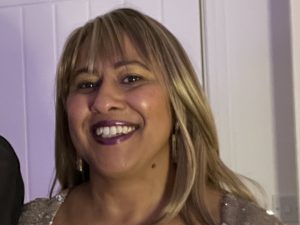Sarah Guerra, Director of Equality, Diversity & Inclusion at King’s College London shares ways of getting involved in IWD 2022 and reflects on the underrepresentation of men in the EDI field.
Once again it is International Women’s Day on the 8th March. I will miss this year’s festivities as I will be enjoying a much needed and long-awaited break in the US of A!
Their website tell us International Women’s Day is powered by the collective efforts of all. Collective action and shared ownership for driving gender parity is what makes International Women’s Day impactful.
They quote Gloria Steinem:
“The story of women’s struggle for equality belongs to no single feminist nor to any one organisation but to the collective efforts of all who care about human rights.” – Gloria Steinem.
This year we are asked to imagine a gender equal world. A world free of bias, stereotypes and discrimination. A world that’s diverse, equitable, and inclusive. A world where difference is valued and celebrated. Together we can forge women’s equality. Collectively we can all #BreakTheBias.
At King’s we have a variety of activity happening. Elevate, in collaboration with the Equality, Diversity and Inclusion Team are hosting an online event on Tuesday 8th March 12:00-13:00 focusing on the theme of this year’s International Women’s Day – #BreakTheBias.
Add your visions of a more equal world to our International Women’s Day Padlet. Ideas from the King’s community will form the inspiration for a poem which will be recited at the event by recent King’s graduate and poet, Karen Ng.
We will also hear from Aleida Borges, Research Associate at the Global Institute for Women’s Leadership, about the institute’s work, as well as her research on women’s grassroots leadership.
You can also unleash your creative side at an International Women’s Day themed Poetry Lunch & Do Session on Wednesday 2nd March, 14.00 – 15.30. Find out more information and register for attendance in person or online.
I have really enjoyed reading the Padlet and look forward to the poem. I also find my thoughts turn to address something that has been on my mind for many years. Something that President & Principal, Professor Shitij Kapur noticed when he arrived at King’s. In short
Where are the men?
On his arrival we organised several listening exercises for him to hear and learn about equality diversity and inclusion efforts and issues across the University.
One with the EDI team. A team that is diverse compared to many at King’s in terms of gender identity, sexual orientation, race and religion – but is also predominantly cis women.
One for those who hold EDI champion positions across the university i.e., chairs of EDI committees, Vice Deans etc. Again, a reasonably diverse set of people but again the vast majority women.
Finally, one with our staff network chairs – a slightly more gender balanced group but still predominantly female.
Why is this?
It is something I notice in so many EDI arenas.
I am a member of the REF equality, diversity and inclusion advisory panel – vast majority women. Similarly, our internal REF EDAP was all female. This is in stark contrast to the wider REF governance bodies internally.
In truth pretty much every EDI event I ever go to is vastly majority female and has a much greater representation of black, asian, minority ethnic, queer and disabled people than in my regular everyday workplace.
How do we change this? If (and I paraphrase Gloria here) the story of the struggle for equality belongs to no single equality activist nor to any one organisation but to the collective efforts of all who care about human rights. If we want to get to that gender equal world, a world free of bias, stereotypes and discrimination. A world that’s diverse, equitable, and inclusive. A world where difference is valued and celebrated. How do we make the ’together’ part so we can forge women’s equality that includes all people – and particularly the group that is often missing and yet still holds most the world’s power – men?
I am not going to do a long spiel. My International Women’s Day call/plea to action is to ask all who read this to give me some ideas and thoughts as to how to get men into the room when we talk EDI.
